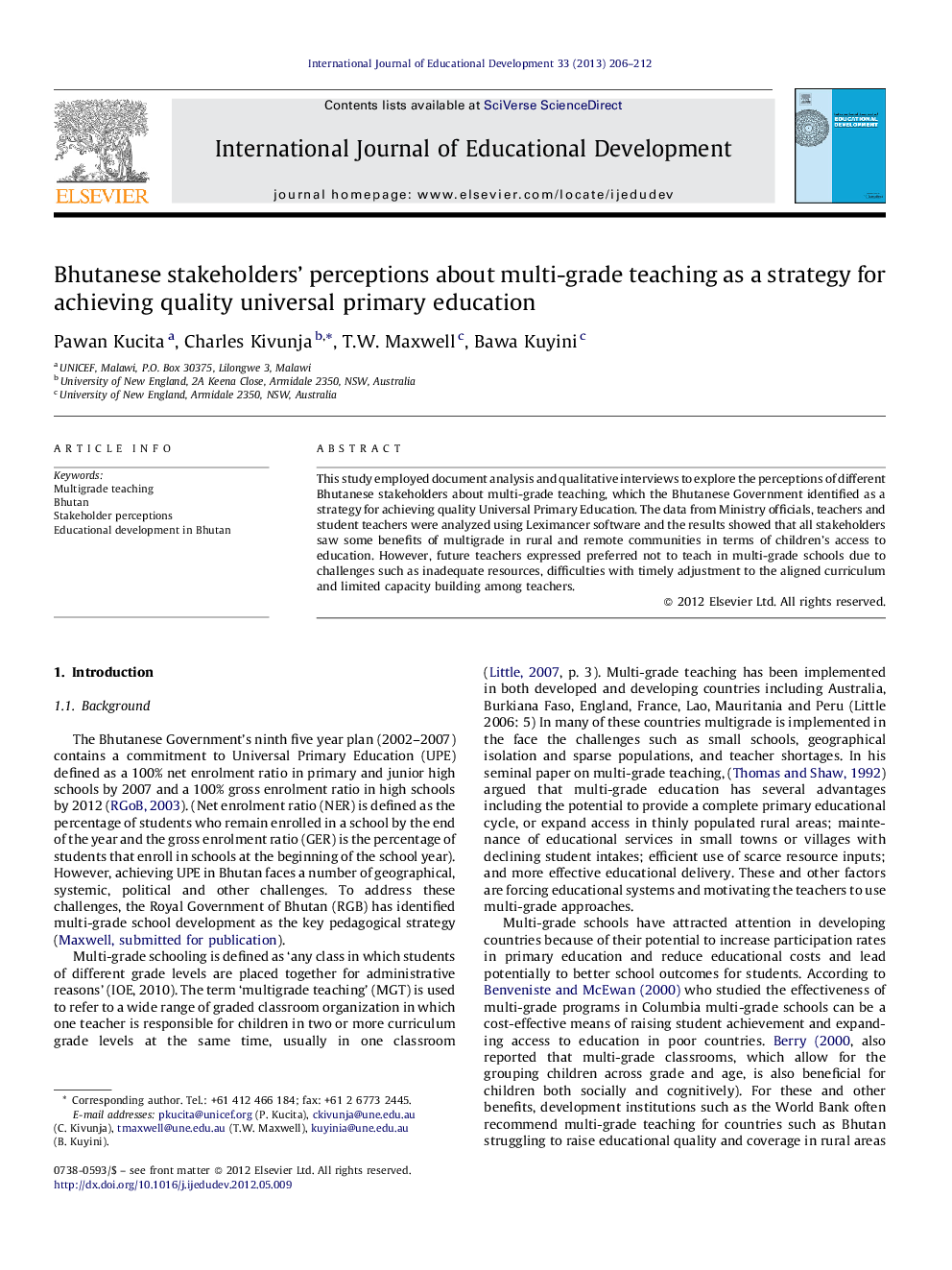| Article ID | Journal | Published Year | Pages | File Type |
|---|---|---|---|---|
| 356229 | International Journal of Educational Development | 2013 | 7 Pages |
This study employed document analysis and qualitative interviews to explore the perceptions of different Bhutanese stakeholders about multi-grade teaching, which the Bhutanese Government identified as a strategy for achieving quality Universal Primary Education. The data from Ministry officials, teachers and student teachers were analyzed using Leximancer software and the results showed that all stakeholders saw some benefits of multigrade in rural and remote communities in terms of children's access to education. However, future teachers expressed preferred not to teach in multi-grade schools due to challenges such as inadequate resources, difficulties with timely adjustment to the aligned curriculum and limited capacity building among teachers.
► Multigrade provided increased access to education to children in rural and remote communities. ► Educational leaders and teachers perceptions of multigrade benefits differed from those of parents. ► Future teachers expressed preferred not to teach in multi-grade schools. ► Future teachers expressed preferred not to teach in multi-grade schools.
